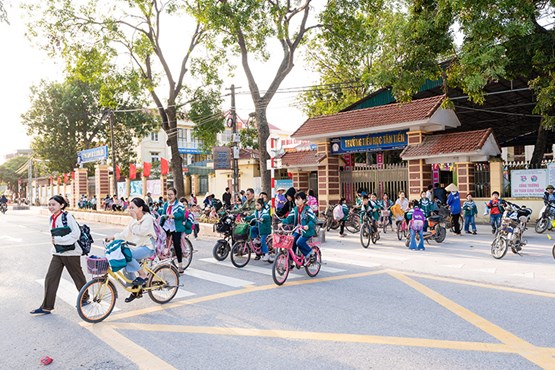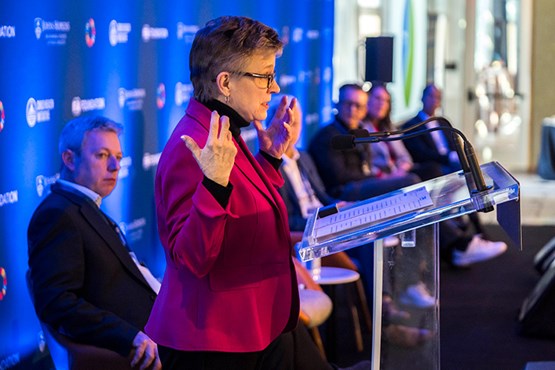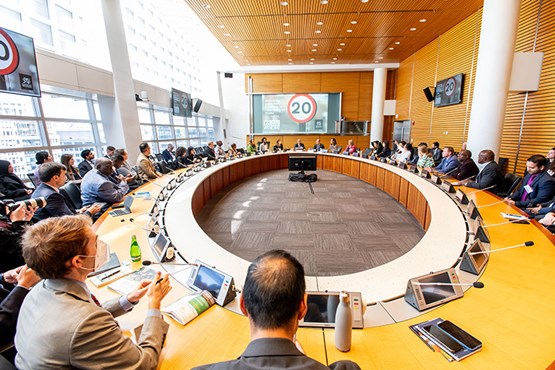WHO road safety analysis shows slight reduction in global deaths, but big increase in Africa

Global road traffic deaths have fallen by about 5%, despite increasing motorisation, according to the World Health Organization's (WHO) Global Status Report on Road Safety 2023. But the survey shows alarming trends for Africa and emphasises the need for urgent action to stem rising deaths and injuries on African roads.
The report, which highlights critical insights into the current state of road safety worldwide, addressing the challenges and progress made in reducing road traffic deaths, was launched in Geneva on 13th December and reveals a 5% global reduction in road traffic deaths since 2010, to 1.19 million annually today. Yet more than 2 deaths occur per minute - over 3200 per day - and road traffic crashes remain the leading killer of children and youth aged 5–29 years.
“The tragic tally of road crash deaths is heading in the right direction, downwards, but nowhere near fast enough,” said WHO Director-General, Dr Tedros Adhanom Ghebreyesus, who launched the report. “The carnage on our roads is preventable. We call on all countries to put people rather than cars at the centre of their transport systems, and ensuring the safety of pedestrians, cyclists and other vulnerable road users.”
More than a hundred countries reported reductions in road traffic deaths since the previous survey in 2018. Around 40 countries achieved significant reductions in deaths, of more than thirty per cent. In stark contrast, Africa stands as the sole region which has experienced an increase in road deaths, rising 17% since the last report. The region now counts over 225,000 annual deaths, 19% of the global total. This concerning trend, set against a backdrop of rising motorisation in the region, highlights an 11% surge in fatalities among powered two- and three-wheeler users. Alarmingly, 28 African countries witnessed an overall rise in road deaths, underscoring the urgent need for targeted interventions and collaborative efforts to address this critical issue.
Saul Billingsley, Executive Director of the FIA Foundation, said "The disproportionately high and rising number of African deaths and injuries identified by the World Health Organization are unacceptable. The continent is seeing rapid motorisation which demands urgent and comprehensive road safety measures tailored to the specific challenges faced by African nations. Efforts should prioritise the safety of pedestrians, cyclists, and motorcyclists. As roads are paved and upgraded, infrastructure design and speed management must align with the safe system approach, placing people's safety at the core of mobility systems. The FIA Foundation make a clear call for transformative policies, investments, and capacity-building initiatives building on proven interventions to address this alarming rise in road traffic deaths."
Nine in 10 deaths occur in low- and middle-income countries, and fatalities in these countries are disproportionately higher when set against the number of vehicles and roads they have. The risk of death is 3 times higher in low-income than high-income countries, yet low-income countries have just 1% of the world’s motor vehicles.
Globally, the report, which was funded by Bloomberg Philanthropies, finds that fifty-three per cent of all road traffic fatalities are vulnerable road users including: pedestrians (23%); riders of powered two- and three-wheelers such as motorcycles (21%); cyclists (6%); and users of micro-mobility devices such as e-scooters (3%). Deaths among car and other 4-wheeled light vehicle occupants fell slightly to 30% of global fatalities.
The findings set a benchmark for efforts to further reduce road traffic deaths and to stem the rise in countries which are heading in the wrong direction. The next Global Ministerial Conference on Road Safety, in Marrakech, Morocco, in February 2025 will be a crucial moment for stocktake and accelerated action. It will be the first Global Ministerial held in Africa, and the specific issues for the continent with the world’s lowest motorisation, yet the most dangerous roads, will need to be in focus.



